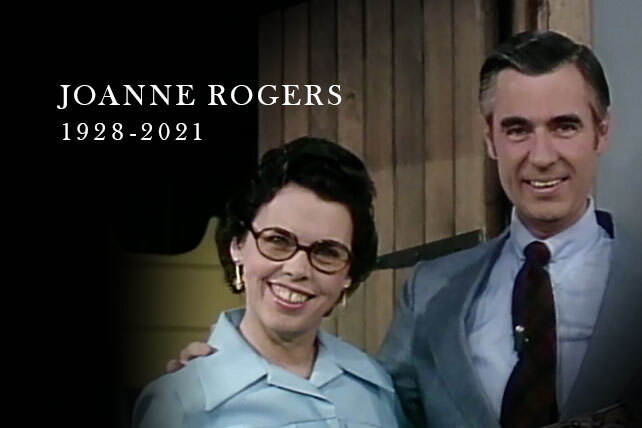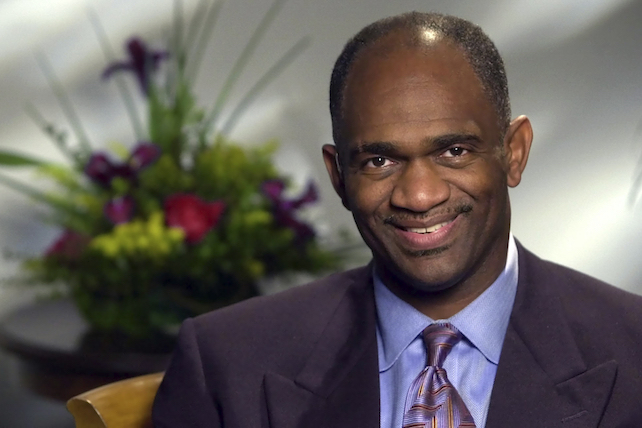How to Know You Know God
One of the most recognizable images of WW2 is the iconic photograph of six Marines planting the American flag on the island of Iwo Jima. That famous picture was circulated in many newspapers in 1945. One morning airman Ed Block was on leave and was reading the newspaper in the home of his mother, Belle. As Belle walked by, she glanced at the newspaper photograph, pointed to the Marine who was thrusting the flagpole into ground, and declared matter-of-factly, “That’s your brother, Harlon.”
That man had his back to the camera, was wearing a uniform, and a helmet. No part of his face or body was visible and he had no distinguishing marks. Ed patiently pointed this out to his mom, and added that no one knew where Harlon was stationed, nor if he was anywhere near Iwo Jima. Belle declared simply, “I know my boy.”
Later, the men in the photograph were identified by the press. The one thrusting the pole into the ground was identified as Henry Hansen, not Harlon Block, who was killed in action on Iwo Jima. But even after this news, Belle maintained that the newspapers were mistaken. Her son may be dead, but he died after he planted that flag.
Two years later, after additional testimony had been gathered about the famous photograph, a correction was published. Harlon Block had indeed been the marine who planted the flag. When Belle heard this, she wasn’t in the least surprised. All she said was, “I know my boy.”
There is something very precious and unmistakable about the bond that is forged by an intimate love relationship. A mother and her boy, a husband and his bride, or as we shall see in our text, a believer and his God.
I’m concerned about people who know about God but do not know him. I also feel sympathy for true believers who could enjoy the security of their salvation but are not sure that they know God in a saving way.
Psalm 116 illuminates this topic.
4 ASPECTS OF AN INTIMATE KNOWLEDGE OF GOD
1. RELATIONSHIP OF LOVE AND PRAYER
Psalm 116: 1I love the Lord, because he has heard my voice and my pleas for mercy. 2Because he inclined his ear to me, therefore I will call on him as long as I live.
The psalmist’s opening declaration is: “I love the Lord.” He can’t contain his heart’s cry.
And the love he feels is not based on a warm and fuzzy sentimentalism, or a burning in the bosom; his relationship of love is based on a knowledge of God’s saving, merciful, forgiving character.
Those God has saved are in a two-way, dynamic, living relationship with him. He is not a dumb idol that we carved out of wood, chose to bow down to, and have an imaginary friend relationship with. No, we love him because he hears us, he saves us, we experience his response to our prayers.
Even in the midst of chaotic distractions, I know my God and I know he hears me when I cry…
Psalm 116: 3The snares of death encompassed me; the pangs of Sheol laid hold on me; I suffered distress and anguish. 4Then I called on the name of the Lord: “O Lord, I pray, deliver my soul!”
God hears and answers the prayers of his children as a sign of his caring relationship with us. There may be prayers that you are praying that God does not seem to be answering, and there are a number of reasons for this, (e.g. your unrepentant sin, God’s better will for your life). But one of the ways we know we are in a real, saving, intimate relationship with God is that we pray to him and we see him answer our prayers. If this is absent from your life, you may lack assurance of your relationship with him, you may doubt at times whether God even exists.
But a healthy prayer life is only one trait of intimacy with God…
2. REST IN TRIALS AND TRIBULATIONS
Psalm 116: 5Gracious is the Lord, and righteous; our God is merciful. 6The Lord preserves the simple; when I was brought low, he saved me. 7Return, O my soul, to your rest; for the Lord has dealt bountifully with you. 8For you have delivered my soul from death, my eyes from tears, my feet from stumbling; 9I will walk before the Lord in the land of the living. 10I believed, even when I spoke, “I am greatly afflicted”; 11I said in my alarm, “All mankind are liars.”
Don’t you feel this cynicism these days? When you encounter fake news, read false claims, discover hidden agendas of politicians, scientists, and journalists, don’t you want to cry out “All mankind are liars”?
But in the milieu of death and tears, and the mayhem of affliction and falsehood, the psalmist exhibits one of the most telling characteristics of a person who knows God: peace.
He is at rest, secure, confident—in life, in death, in trials and tribulations—because of his knowledge of God.
A restful, peaceful spirit in the eye of a storm of life’s stress and anxiety and threats and chaos, is a sure sign of knowing God. When you know his strength and wisdom, then fear doesn’t drag you around like a frightened horse; fear is easy to rein in.
What about you? Do you know God well enough to let that knowledge calm your spirit? Are you sure in your relationship with him, enough to believe he is able and willing to help you, and that he is on your side?
If not, you need to talk to yourself, reining in your fears, and stop listening to your frenetic riderless thoughts. Recall God’s works, his promises to you, and his character.
3. RESPONSE OF GIVING AND SERVING
Psalm 116: 12What shall I render to the Lord for all his benefits to me? 13I will lift up the cup of salvation and call on the name of the Lord, 14I will pay my vows to the Lord in the presence of all his people.…17I will offer to you the sacrifice of thanksgiving and call on the name of the Lord. 18I will pay my vows to the Lord in the presence of all his people, 19in the courts of the house of the Lord, in your midst, O Jerusalem. Praise the Lord!
These phrases—render, lift up, call on, pay vows, offer—are all from the language of response.
When you are in relationship with someone, and they do something for you, you naturally respond to them. Different people have different ways they like to be loved…quality time, words of affirmation, gift-giving, and others. But God’s love-language is obedience.
1 John 2: 3 And by this we know that we have come to know him, if we keep his commandments.
To know God is to love him and to love him is to obey him.
Anyone who calls themselves a Christian but refuses to repent of what Jesus hates, like premarital sex, adultery, lying, laziness, gossip, greed, selfishness, and the other sins mentioned in Scripture, cannot be sure that they are in a saving love relationship with Jesus.
In a relationship with God, our obedience expressed through our financial offering, our serving in his kingdom, our participation in his work of evangelism and missions and church and worship is not payment, it’s an expression that is an overflow of our hearts.
4. REJOICING IN THIS LIFE AND THE NEXT
Psalm 116: 9I will walk before the Lord in the land of the living.… 15Precious in the sight of the Lord is the death of his saints. 16O Lord, I am your servant; I am your servant, the son of your maidservant. You have loosed my bonds.
When you love your pet, there is always the nagging reality that pets tend not to live as long as their owners. Usually one spouse will die before the other. Chrildren will bury their parents and sadly, sometimes, the other way around.
The unique aspect of our relationship with God is that it will never ever end. In fact, your relationship with God grows stronger and closer every year you are alive and then suddenly, in death, receives a massive upgrade!
Death is the most ominous, inescapable enemy of life. Every day that we live is one day closer to our expiry date. Death is something we try desperately to stave off with diet, medication, exercise, and seatbelts. But in the end death comes to all.
And yet, for believers, death only brings us to the object of our deepest love and affection, our Lord and Savior. This begets rejoicing in this life and the next. Paul, who understood this reality better than anyone, seemed positively schizophrenic when it came to his excited anticipation of death.
Phil 1: 21 For to me to live is Christ, and to die is gain. …23 I am hard pressed between the two. My desire is to depart and be with Christ, for that is far better.
The death of saints is a precious thing in God’s sight because it is a homecoming to the one we love.
CONCLUSION
If you realize you do not know Christ. Or you are not sure….you can either…
– Ignore that dissonance in your soul, close down this blog, have dinner, watch TV, and tomorrow you will get back on the treadmill of work, parenting, hobbies, and entertainment. This option is a devastatingly common and perilous choice. It will culminate on Judgment Day, where you will call out to Jesus with a list of reasons why you should go to heaven, and he will reply with a chilling finality, I never knew you, depart from me.
OR…
– Cry out to Jesus. Whoever calls on the name of the Lord will be saved. Call to him and say: “you are the only hope I have of having my sins forgiven. I trust in you Jesus to save me from my sins.”
And then you will start to notice changes in your life…you will have: a relationship of love and prayer, rest in trials and tribulations, a response of giving and serving and rejoicing in this life and the next.
This article originally appeared here.











